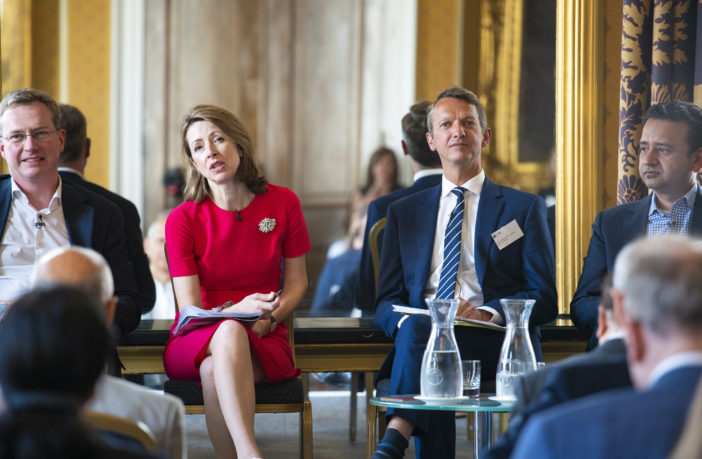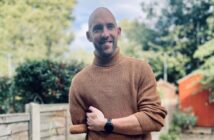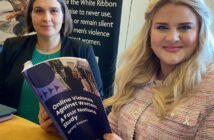“Lifelong learning can no longer be a slogan. It has to be a practical reality.” That was the message fronted by Andy Haldane, Chief Economist of the Bank of England, at an event held to champion the importance of digital skills and access to education.
The event, one in a series of talks organised for The Open University’s 50th year, was entitled Lifelong Learning, Beyond Boundaries: Building Skills in a Digital Age. Hosted by OU honorary graduate Prue Leith, and held at The Institute of Directors in London, it included a panel of speakers: Malcolm Sweeting, Pro-Chancellor of The Open University; Andy Haldane, Chief Economist, Bank of England; Lord Dr Hastings of Scarisbrick CBE, Chancellor, Regents University London; Dame Helena Morrissey DBE, Head of Personal Investing, Legal & General Investment Management; Scot Gardner, Chief Executive UK & Ireland, Cisco; and Mohit Joshi, President, Infosys.
The event centred around The Open University’s ‘Bridging the Digital Divide’ report to highlight the extent of digital skills gaps and the impact they’re having on organisations and their employees, and a range of educational solutions.
Panel members each gave a five-minute talk followed by an interactive Q&A session with members of the audience, comprising senior leaders of FTSE 100 companies, policymakers and think tanks.
‘If you think that’s bad news…’
Andy Haldane, an OU honorary graduate, said: “So, we have a situation where we have a chunk of our workforce functionally illiterate and innumerate, lacking vocational, digital and management skills. If you think that’s bad news, that’s today, let’s look forward to tomorrow.
“The first three industrial revolutions have all been about developing cognitive skills – the head. The fourth industrial revolution will be about developing the hands – technological skills, and the heart – emotional and interpersonal skills to a much greater degree.
“We are now living lives with 70-year careers, which means lifelong learning can no longer be a slogan it needs to be a practical reality.
And he spoke about the need for flexibility to support people to be able to work and get an education at the same time. The Bridging the Digital Divide report refers to OU’s offering to help employers develop skills most relevant to their organisations through apprenticeships
‘Lifelong educational passport’
“When it comes to lifelong learning, the educational model needs to accommodate an interspersion of working and educating, with a much more modular and flexible approach, a ‘lifelong educational passport’ that can be flexed between courses and institutions.”
The Open University’s 2019 Bridging the Digital Divide report highlights the extent of digital skills gaps and the impact they are having on organisations and their employees. Currently, nine in 10 (88 per cent) organisations admit they have a shortage of digital skills, which is already having a significant negative impact on productivity, efficiency and competitiveness.
‘Central role to play’
The OU is currently working with organisations and the government to support them in overcoming skills gaps in the workforce, and wider labour market, by developing high-quality apprenticeships and flexible degree programmes that meet their needs.
OU Pro-Chancellor Malcolm Sweeting was also on the panel. He said: “Since Harold Wilson first proposed a ‘University of the Air’ in his ‘white heat’ speech in 1963, The Open University has had a central role to play in the continuous transformation of the education landscape, with technology as its engine and partnerships as its fuel.”
He added: “The UK is an educational superpower. Not only can we have a national impact, we can have a global impact.”
And Lord Hastings, Chancellor of Regents University London, spoke about the importance of confidence as a vital skill in the digital age.
Speaking at the OU50 event, he said: “We are not looking back at the last 50 years but looking forward – how we capture the energy necessary to stay as active lifelong learners – the rediscovering of the abilities of the mind so we constantly develop ourselves, as technology is not standing still.”
Confidence is not listed as a fundamental skill in the digital revolution but it’s an important skill for the future, he added.



